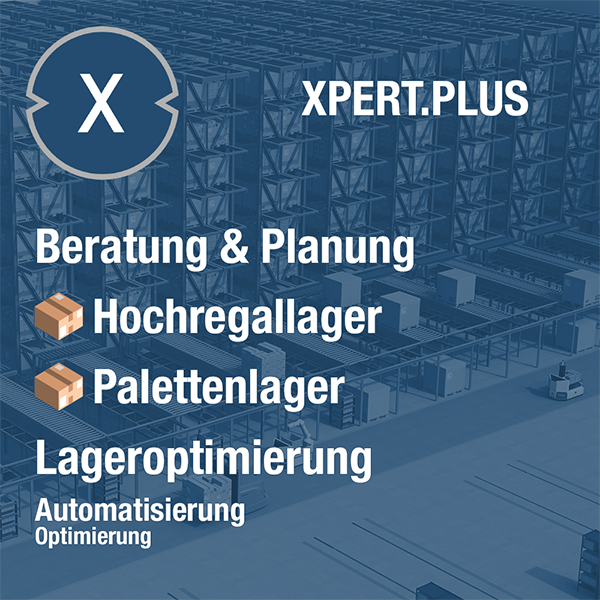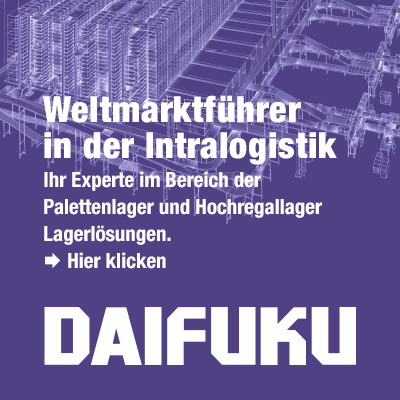The quiet revolution for Britain: Why the future of food lies in automated cold storage
Xpert pre-release
Language selection 📢
Published on: August 25, 2025 / Updated on: August 25, 2025 – Author: Konrad Wolfenstein

The quiet revolution for Great Britain: Why the future of food lies in automated cold storage – Image: Xpert.Digital
Food security in the UK: How automation strengthens the supply chain and creates resilience
Why has food security become a critical issue in the UK?
The United Kingdom's food security has emerged as one of the country's most pressing strategic challenges in recent years. With a self-sufficiency rate of just 62% for food and only 75% for domestic produce, the country finds itself in an increasingly precarious dependence on international supply chains. These figures are particularly alarming considering that 40 years ago, the UK produced over 75% of its own food.
This dramatic decline in self-sufficiency is the result of a combination of structural changes and recent political and economic shocks. Population growth, changing consumer preferences, and the increasing demand for a diverse diet that includes products that are not climatically viable in the UK have contributed to this development. Of particular concern is the decline in self-sufficiency in fresh vegetables to just 53%—the lowest level since records began in 1988.
What external factors have destabilized UK food security?
Brexit has proven to be one of the most disruptive factors for British agriculture and food security. The separation from the European Union not only ended free trade with the most important trading partner for agricultural products, but also led to significant bureaucratic hurdles. Farmers now face complex documentation requirements, approval processes, and unforeseen delays, leading to food waste and lost sales. The EU remains the main supplier of British food, accounting for 24.2% of imports in 2023, but the share has declined significantly since 2018.
The EU's Common Agricultural Policy (CAP), which shaped British agricultural policy for decades, has been replaced by a new system focused on public goods and environmental services. While this reorientation could have positive long-term effects, the transition process creates significant uncertainty for farmers. Direct payments to farmers are being phased out, placing enormous financial pressure on many farms.
The war in Ukraine has dramatically exposed the vulnerability of global food supply chains. Russia and Ukraine together account for 36% of global wheat exports and significant shares of other staple food products. The conflict led to dramatic price increases for energy, fertilizers, and animal feed. British farmers experienced a 50% increase in feed costs within a single year, significantly increasing production costs and threatening the economic viability of many farms.
How do budget cuts affect British agriculture?
The UK government has made significant cuts to agricultural support in recent years. Since 2015, subsidies for farmers have fallen by 20% in real terms, representing a loss of £722 million in public funding. These cuts are continuing: the Labour government has announced a further annual cut of £100 million to England's agricultural budget.
These reductions come at a time when British agriculture is already under enormous pressure. In 2023, 8,100 farms closed their doors—almost one in 25 farms in the country. The combination of reduced subsidies, rising production costs, and extreme weather events has led to a collapse in confidence in the farming community. A survey by the Country Land and Business Association found that 88% of farmers would have to return to intensive farming methods if funding for sustainable programs were removed.
Why is automation in the cold chain crucial for food security?
Cold chain automation is a critical component for strengthening food security. Given the United Kingdom's increasing dependence on imports—particularly 84% of fresh tomatoes and significant portions of other perishable goods—efficient buffer stock management becomes a strategic imperative. Automated systems make it possible to mitigate fluctuations in supply and ensure continuous food availability.
The challenges of cold chain logistics are complex: precise temperature control, strict inventory management, and rapid order fulfillment are required to ensure quality and safety. Traditionally, cold storage operations relied on manual labor for tasks such as picking, packing, and inventory management. However, this approach often led to inefficiencies, increased labor costs, and a higher risk of errors.
Automated warehouse systems and transport vehicles (AS/RS and STVs) have proven to be transformative solutions. These systems can transport goods between storage racks and picking stations with minimal human intervention. The flexibility of STVs enables faster retrieval times and smoother workflows, while also operating in temperature-controlled areas where employees can work in more comfortable conditions.
How do buffer systems contribute to supply chain resilience?
Buffer systems play a crucial role in creating resilience in the food supply chain. They act as a strategic reserve that can offset fluctuations in production and demand. In a volatile global environment where supply disruptions can occur due to geopolitical events, extreme weather events, or pandemics, automated buffer systems provide the flexibility needed to maintain supplies.
The COVID-19 pandemic has highlighted the fragility of global food systems. Sudden surges in demand, supply chain disruptions, and labor shortages have led to shortages on supermarket shelves. Automated systems have proven more resilient to these disruptions because they are less dependent on human labor and can operate around the clock.
Modern buffer systems leverage artificial intelligence and machine learning to make proactive decisions for optimal system automation. These systems can predict demand patterns, automate inventory rotation, and optimize warehouse efficiency through precise inventory management. Especially in the cold chain, they enable the management of goods based on expiration dates and best-before information—a continuous flow of pallet storage, retrieval, and picking based on specific requirements.
How can automation help manage supply fluctuations?
Automation offers several mechanisms for managing supply fluctuations, which are critical to food security. First, automated systems enable precise inventory management through real-time product monitoring and tracking. Warehouse control software (WCS) and warehouse execution software (WES) can manage inventories based on FEFO (First-Expiry-First-Out) and FIFO principles, respectively, minimizing food waste and maintaining product quality.
The systems can continuously monitor temperatures in various zones of the cold storage facility to ensure products are stored within the correct temperature range. They can also monitor how long products are exposed to temperatures outside the desired range and send alerts based on user-defined time limits. This functionality is critical for maintaining product integrity during supply disruptions.
A key aspect of automation is the ability to anticipate and respond to fluctuations in demand. Modern systems leverage predictive analytics and artificial intelligence to identify demand patterns and optimize inventory levels accordingly. This enables companies to build strategic reserves while avoiding overstocking.
Automation also reduces dependence on human labor, which is especially important in times of crisis. The COVID-19 pandemic demonstrated how labor shortages can impact the food supply. Automated systems can operate around the clock without interruption, ensuring continuity of supply even when staff availability is limited.
What is the importance of temperature control for food security?
Temperature control is a fundamental aspect of food security, going beyond mere storage and encompassing the entire cold chain from production to consumer. Precise temperature control is crucial to prevent spoilage, protect consumers, and avoid costly product recalls. At a time when the United Kingdom is heavily dependent on imports, cold chain integrity becomes a national strategic interest.
Automated cooling systems offer significant advantages over manual approaches. They can maintain consistent temperatures across different zones while using energy more efficiently. An automated storage and retrieval system (AS/RS) has a smaller roof area than conventional racking systems and can achieve energy savings of 35-50%. This is especially important given rising energy costs, which have been exacerbated by the war in Ukraine and other geopolitical factors.
The systems can also maintain detailed logs and audit trails for all temperature measurements, inventory movements, and user actions to simplify compliance reporting and provide reports for audits. This documentation is critical for traceability and quality assurance in an increasingly regulated food industry.
Xpert partner in warehouse planning and construction
Automation in cold chains: Improved safety and more efficient food supply
How does digitalization contribute to the resilience of the cold chain?
Digitalizing the cold chain is a critical factor in creating resilience to disruptions. Internet of Things (IoT) services enable real-time information, online deliveries, and market-based demand forecasts. In an environment where the majority of stores and markets were closed due to COVID-19 restrictions, digital services proved to be lifesaving.
A cold chain with a strong digital manufacturing system enables standardized work to meet consumer demand, allows workers to stay in their jobs, and alleviates the pressure of dependence on specific experts or individuals for smooth operations. Digitalization also enables real-time data sharing between companies and governments, closing communication gaps and enabling timely decisions to manage crises.
Advanced temperature tracking and reporting are key technologies increasingly being adopted in food supply chains worldwide. They provide valuable temperature visibility throughout the supply chain, enable rapid action in the event of issues, and provide data that can help improve travel efficiency, safety, and temperature assurance.
The integration of artificial intelligence and machine learning into cold chain automation enables systems to make proactive and dynamic decisions for optimal system automation. These technologies can predict demand patterns, detect anomalies, and initiate preventative maintenance actions before problems occur.
What are the challenges of implementing automation in the cold chain?
Implementing automation in cold environments presents unique technical and operational challenges. Extreme temperature conditions place specific demands on materials and technology. Forklift trucks must be equipped with specialized components, cables, and a specific steel grade to operate reliably in -25°C environments. Pallet shuttles have similar requirements and utilize low-viscosity lubricants, heated controllers, and capacitors instead of lithium-ion batteries.
Conditions that are so stressful for humans can also pose challenges for automation systems that aren't specifically designed for low temperatures. This requires specialized equipment and expertise, which can increase investment costs. However, the long-term benefits in the form of reduced personnel burden, improved safety, and increased efficiency outweigh these initial costs.
Another obstacle is the complexity of integrating different systems. Modern cold chain solutions must seamlessly integrate AS/RS systems, conveyor systems, automated guided vehicles, and warehouse management software. This integration requires specialized expertise and careful planning to ensure that all components work together harmoniously.
Training staff and adapting to new workflows can also present challenges. While automation reduces repetitive and physically demanding tasks, it requires employees to develop new skills in system monitoring and maintenance.
How does automation affect working conditions in the cold chain industry?
Automation is having a transformative impact on working conditions in the cold chain industry, with significant improvements in employee safety and well-being. Traditionally, cold storage operations required personnel to work in extreme conditions as low as -25°C, which not only impacts productivity but also poses safety risks. Automation significantly minimizes the need for manual labor in these hazardous environments.
By implementing automated systems, picking tasks can be performed in well-lit, safe areas with comfortable temperatures between -5°C and +5°C. This improvement in working conditions leads to increased employee well-being, satisfaction, and more productive operations. STVs can deliver goods to operators, allowing tasks to be performed outside of extreme cold environments.
Automation also reduces physical strain and repetitive movements that can lead to workplace injuries and long-term health problems. Automated systems take over heavy lifting, repetitive movements, and precise positioning, significantly reducing the risk of injury to employees. This leads to lower insurance costs, reduced employee turnover, and improved morale.
While some fear that automation will lead to job losses, the reality is more nuanced. Automation often shifts the nature of required work from physically demanding, repetitive tasks to more technical roles in system monitoring, maintenance, and optimization. This can lead to better career opportunities and higher wages for skilled workers.
What impact does automation have on food quality and safety?
Automation plays a critical role in improving food quality and safety by reducing human error and ensuring consistent processes. Automated systems eliminate many of the variables that can lead to quality and safety issues, such as inconsistent temperature control, improper handling, and cross-contamination.
Precise inventory rotation is a critical aspect of food safety, significantly improved through automation. Warehouse control software can automatically manage products based on expiration dates and best-before information, ensuring older stock is used first. This reduces food waste and minimizes the risk of spoiled products reaching consumers.
The continuous monitoring and documentation provided by automated systems is crucial for traceability. When a food safety issue occurs, automated systems can quickly identify the affected product batches and track their progress through the supply chain. This capability is critical for effective recalls and minimizing the impact of safety issues.
Automated systems also use food-safe lubricants and materials specifically designed for food contact. This ensures that the automation itself is not a source of contamination. Furthermore, automated systems reduce manual handling of products, thus reducing the risk of contamination from human contact.
How can automated systems contribute to the long-term sustainability of the food supply?
Automated systems contribute to the long-term sustainability of the food supply in several ways. First, they optimize energy efficiency through precise temperature control and reduced energy waste. AS/RS systems can achieve energy savings of 35-50% compared to conventional storage systems, which is especially important given rising energy costs and environmental concerns.
Reducing food waste is another critical sustainability aspect. Through precise inventory management, optimized stock rotation, and improved quality control, automated systems can significantly reduce the amount of food that spoils before reaching consumers. This is especially important given that an estimated one-third of all food produced worldwide is lost or wasted.
Automated systems also enable better space utilization through vertical storage and compact system designs. This means more inventory can be stored in fewer square meters, reducing the need for facility expansions. This efficient use of space is crucial in a world of growing urbanization and limited available land.
The longevity and reliability of automated systems also contribute to sustainability. Well-designed automation systems can operate for decades with minimal maintenance, reducing the need for frequent replacements and the associated environmental impact. Furthermore, these systems enable more precise planning and forecasting, which can reduce overproduction and the associated waste of resources.
The ability of automated systems to operate around the clock also maximizes the efficiency of existing infrastructure. Instead of building new facilities, companies can make more intensive use of their existing facilities, reducing the overall footprint of food logistics. This is especially important for the sustainability of the global food supply.
What role do automated systems play in meeting future challenges?
The role of automated systems in addressing future food supply challenges cannot be overstated. With projected population growth, increasing urbanization, and intensifying climate change, the demands on food systems will increase exponentially. Automated systems provide the scalability and flexibility needed to meet these growing demands.
Climate change poses particular challenges for food production and distribution. Extreme weather events, changing precipitation patterns, and rising temperatures are already impacting agricultural production worldwide. Automated cold chain systems can help mitigate these impacts by creating a more reliable and controlled environment for the storage and transport of temperature-sensitive foods.
The ability of automated systems to collect and analyze large amounts of data will also be crucial for optimizing global food distribution. By integrating IoT sensors, artificial intelligence, and machine learning, these systems can predict demand patterns, anticipate supply chain disruptions, and take proactive measures to maintain supplies.
The modular nature of modern automation systems also allows them to grow and adapt with changing needs. Companies can gradually expand their automation capabilities as demand grows, ensuring investments remain flexible and aligned with evolving business requirements.
Ultimately, automated systems will play a critical role in creating resilient local and regional food systems. By enabling efficient, small-scale production and distribution facilities, these systems can help reduce reliance on long, vulnerable supply chains while strengthening local food security.
Investing in automated cold chain technologies is therefore not just a response to current challenges, but a strategic preparation for a future in which food security, sustainability, and resilience will be crucial. For the United Kingdom, which already faces a critical food self-sufficiency deficit, comprehensive cold chain automation could be key to securing its long-term food security.

Xpert.Plus warehouse optimization - high-bay warehouses such as pallet warehouses consulting and planning
We are there for you - advice - planning - implementation - project management
☑️ Our business language is English or German
☑️ NEW: Correspondence in your national language!
I would be happy to serve you and my team as a personal advisor.
You can contact me by filling out the contact form or simply call me on +49 89 89 674 804 (Munich) . My email address is: wolfenstein ∂ xpert.digital
I'm looking forward to our joint project.























